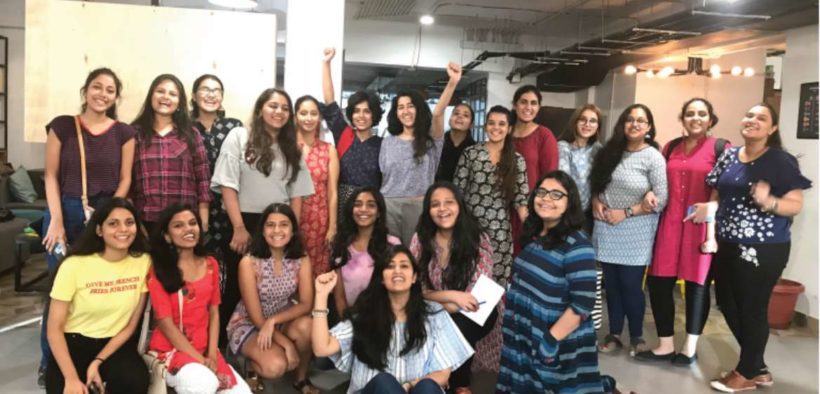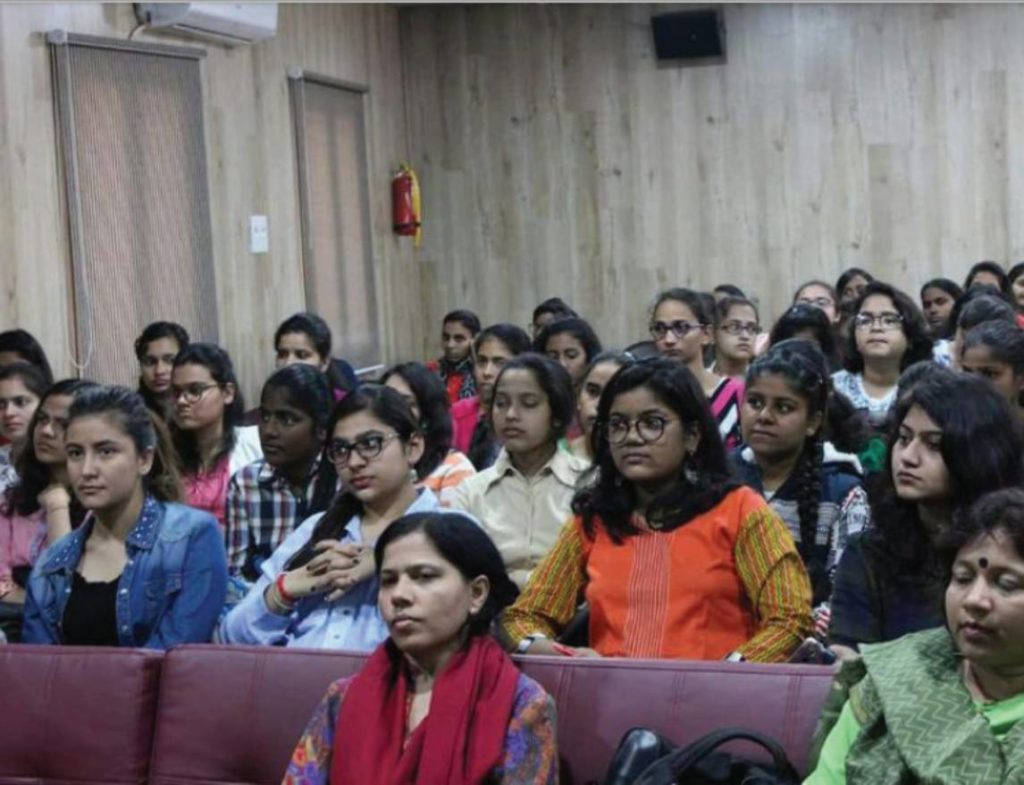It’s Not About Sex

Haiyya’s #HealthOverStigma aims to get women to access to proper reproductive healthcare without stigma.
By Anila Mathew Vivek
A scene from a Tamil blockbuster, Bhairava, showed precisely what is wrong with our priorities as a society. In a bid to harass the female lead, who is an MBBS student, she is asked to describe the reproductive process in Tamil. She is so scandalized that she leaves in tears. This is an attitude that is echoed everywhere in India. When such taboos start affecting the health of women, it must be viewed in seriousness. The NGO Haiyya tackles issues that are pertinent to the youth of today, with gender issues being a focal point. Led by a group of progressive youth, the Haiyya team soon discovered that each of its members had a story to share about embarrassment or shame, thanks to what was primarily a health issue.

When a Haiyya co-founder had to visit a gynecologist in Delhi after contracting a UTI, the experience became a nightmare due to the judgmental attitude of the doctor. Indian society views the reproductive organs as a means to beget children and any conversation around these organs is bound in euphemisms and shrouded in almost complete secrecy. The team at Haiyya, led by Executive Director Aprajita Pandey, felt that the lack of awareness about reproductive health is a serious issue that concerns women primarily. As in most other illnesses, Indians, especially women, do not approach a doctor unless there are severe symptoms that begin interfering in other aspects of life. Cases like unwanted pregnancies come under the ambit of legally-sanctioned medical termination of pregnancy (MTP).
Often moral policing and patriarchal honor make it impossible for young women to get access to these services, leading to unsafe and fatal abortions. Thus, Haiyya’s #HealthOverStigma campaign was born in 2017. It seeks to raise awareness and spread the word about reproductive health, particularly for young, unmarried women who do not often get the medical care that they should. Haiyya has organized workshops for college going girls in Delhi and for women working in the corporate sector. The past year and a half have seen the hosting of more than 500 sessions of Haiyya’s unique programme, the Vagina Dialogues.
Vagina Dialogues also recommends doctors who may be approached in case of a health issue. More than 5,000 women have been a part of these sessions. “As someone who has pondered over issues relating to gender discrimination and stigmatization of women, Health over Stigma is a perfect platform to begin my journey of action,” says Medhavi Dhyani, 19, student. Given that the issue is taboo and met with so much resistance, not many are open to funding this campaign. Much of the campaign has been self-funded from revenue gained from other activities of Haiyya.
VAGINA DIALOGUES ARE SHORT SESSIONS THAT AIM AT BUSTING COMMON MYTHS AND PROVIDE WOMEN WITH AN OPPORTUNITY TO SHARE THEIR EXPERIENCES. IT IS A COMMUNITY CIRCLE WITH FACILITATORS. WOMEN WHO ATTEND THE MEETINGS ARE ENCOURAGED TO BECOME FACILITATORS THEMSELVES.
Aprajita Pandey
Executive Director, Haiyya
Haiyya has been spreading the message further through videos of open mic story sessions on social media and sharing real-life stories on the digital platform. A petition was begun on Change.org platform too. Efforts are on to involve more women from other cities. So far, the campaign has been centered in Delhi and Bombay. Interestingly, despite Delhi and Bombay being relatively more cosmopolitan than other parts of the country, Haiyya has been confronted by morality issues and conservative censure. It was also seen that doctors who ought to protect a patient’s privacy and offer treatment without judging women are often found to indulge in unethical behavior.
Haiyya is now focusing on enforcing a code of conduct to be followed by gynecologists working in both private and government hospitals. “In my clinical practice, I have seen that women and girls often do not have a lot of say when it comes to their sexual or reproductive health,” says Dr. Surbhi Singh, gynecologist, and president founder of NGO Sachi Saheli. “Since there is a lot of stigmas attached to sex and being sexually active, unmarried girls and women who are sexually active are not able to reach gynecologists for help if they need it due to fear of being judged or shamed. I believe that as doctors we will be able to do best by our patients when we give them the treatment and care they deserve and keep our judgments and biases at bay.”
The campaign has met with a series of reactions from its audience. The most prominent reaction was a feeling of relief that women stopped feeling alone in their tribulations. However, there were also allegations that it was a move to promote promiscuous behavior. The team specifies that it was not to encourage sexual activity but to educate women about their bodies, which could help them make informed choices. “We want to reach out to rural women next by interacting with organizations which are already working in villages of Bihar and UP,” says Pandey. “The vision for 2019 entails that all government hospitals in Delhi, mohalla clinics, etc. should provide free services for the sexual and reproductive health of young women. There will also be an effort to create a group of doctors for #HealthOverStigma. The doctors will be trained to handle such health disorders with sensitivity and confidentiality. More local chapters will also be added to extend the reach of the campaign to women of different sexual identities like the LGBTQ community and the marginalized women who live in slums.
Also read about
















